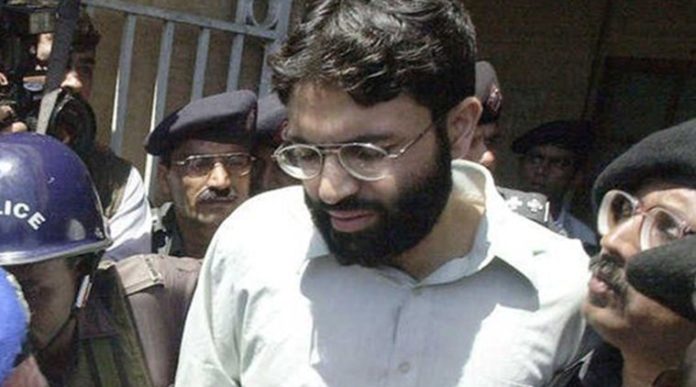New Delhi (NVI): While the whole world is busy tackling the challenge posed by coronavirus, the Sindh High Court in Pakistan has passed a crucial judgement, giving huge relief to Ahmed Omar Saeed Sheikh, one of the three terrorists released in exchange of hostages of hijacked Indian Airlines plane IC-814 in 1999.
Sheikh had been given death sentence in connection with the 2002 kidnapping and killing of American journalist Daniel Pearl but the Sindh High Court on April 2 commuted it to seven years’ imprisonment.
The court absolved Sheikh in the murder of Pearl but upheld his conviction for kidnapping and hence the lesser punishment. Since he has already served more than 7 years in jail, he was to be freed. This evoked angry reactions from the US, as well as human rights activists and some leading journalists.
Subsequently, the Sindh government on April 3 invoked the Maintenance of Public Order (MPO) law against 47-year-old Sheikh to keep him in detention for 90 days.
Pearl, a journalist with Wall Street Journal, was kidnapped in Pakistan in 2002.
The abductors demanded release of all Pakistani terrorists lodged in Guantanamo Bay prison of the US. A few days later, however, the US Consulate in Karachi received a video showing beheading of Pearl.
It was under intense American pressure that the then Pervez Musharraf government arrested Sheikh, a British national born to Pakistani parents, who had close links with Al Qaeda and was in touch with Osama bin Laden.
India has a particular interest in the fate of Sheikh since he was serving a jail term here for terror activities before being freed because of hijacking of IC-814 plane in 1999 by ISI-backed terrorists.
Sheikh, who dropped out of education in London and underwent arms training in Afghanistan, had been arrested in India in 1994 in connection with abduction of 4 western tourists – three British and one American – from Delhi.
He had presented himself as Rohit Sharma to the four tourists and earned their confidence, enough to take three of them to Saharanpur in Uttar Pradesh and one to Ghaziabad in Uttar Pradesh on the pretext of showing his ancestral property.
It was sheer by chance that their kidnapping came to light. A police team, on hunt for robbers in a case, found the American national locked up in a house in Ghaziabad and the kidnapping plot was unravelled. Subsequently, the British nationals, kept locked in a house in Saharanpur were also freed.
Some reports in the American media later said that during his trial, Sheikh’s legal fee was paid by ISI.
In December 1999, five Pakistani terrorists hijacked the IC-814 plane during its flight from Kathmandu to New Delhi and commandeered it to Kandahar in Afghanistan, which was then under Taliban rule.
The hijackers demanded release of Sheikh along with two other top terror leaders – Masood Azhar, who later formed Jaish-e-Mohammad outfit, and Mushtaq Zargar alias ‘Latram’, chief commander of Al Umar Mujahideen outfit. All the three were in different Indian prisons at that time in connection with acts of terrorism.
Sheikh, Azhar and Zargar was finally released in exchange of 166 hostages on board the plane.
After his release, Sheikh lived in Pakistan but kept visiting Afghanistan to train terrorists.








